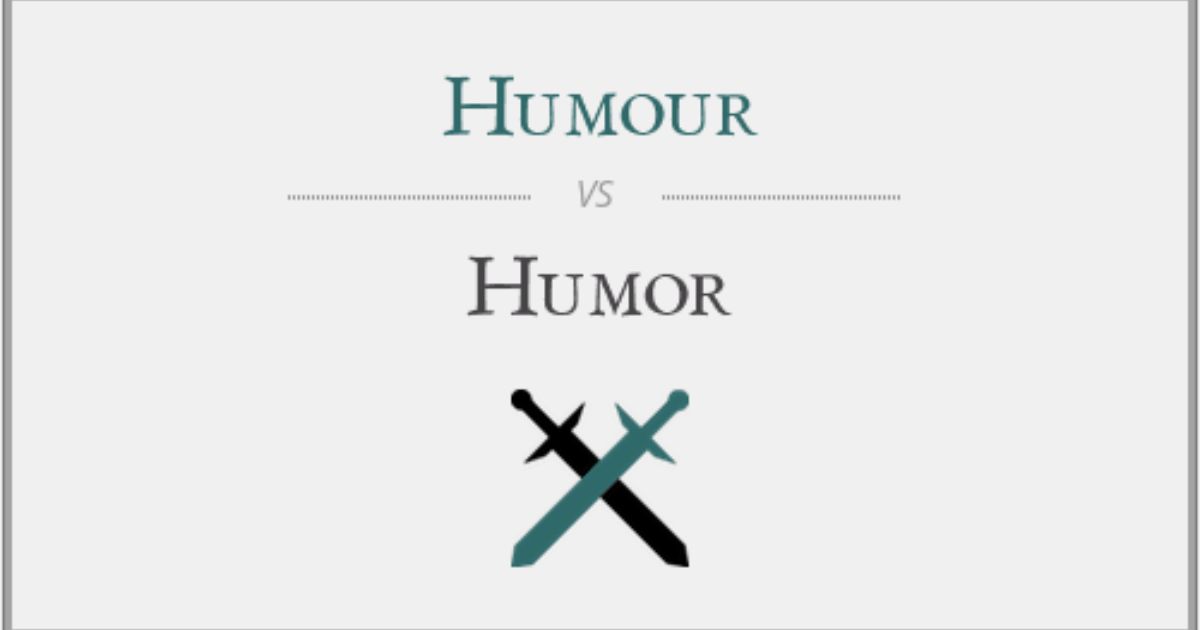You might find yourself puzzling over whether to spell it humor or humour. This common spelling dilemma confuses many writers, students, and professionals who want to ensure their writing appears polished and correct. The truth is, both “humor or humour” are correct spellings of the same word, and understanding when to use each version comes down to knowing your audience and the variety of English you’re writing in.
You are crafting an essay, sending a professional email, or writing creative content, choosing between humor or humour is simply a matter of regional preference rather than grammatical correctness. Exploreing the differences between these two spellings, their historical origins, proper usage in sentences, and help you determine which version is right for your writing needs.
Which One Is Correct Humor Or Humour?
Both spellings are correct it just depends on where you are in the world. “Humor” is the standard spelling in American English, widely used throughout the United States and in American publications.

“Humour” is the British English spelling, commonly used in the United Kingdom, Canada, Australia, and other Commonwealth countries. This difference is part of a broader pattern in English spelling variations, similar to “color/colour” or “favor/favour.”
What Difference Between Humor Or Humour?
There is no difference in meaning between “humor” and “humour” they are simply two different spellings of the exact same word. Both refer to the quality of being funny, amusing, or comical, and both can also describe a person’s mood or temperament. The only distinction is regional: “humor” is the American English spelling, while “humour” is the British English spelling used in the UK, Canada, Australia, and other Commonwealth nations.
This spelling variation emerged from American spelling reforms in the 1800s that dropped the “u” from many words ending in ” our.” When you use either spelling, you’re expressing precisely the same concept there is no subtle difference in tone, formality, or connotation. The choice between them is purely a matter of which English dialect you’re writing in, so pick the version that matches your audience or the style conventions of your region or publication.
Uses Of Humor In Sentences

As a noun (referring to comedy or amusement):
- “Her sense of humor always brightens up the office.”
- “The speaker used humor to make his presentation more engaging.”
- “I don’t appreciate that kind of dark humor.”
As a verb (meaning to indulge or go along with someone):
- “I decided to humor him and listen to his unusual theory.”
- “She humored the child by pretending to see the imaginary friend.”
- “Just humor me for a moment and consider this possibility.”
Referring to mood or temperament:
- “He was in good humor after hearing the positive news.”
- “The boss was in an ill humor this morning, so we avoided her office.”
- “Her humor changed quickly from cheerful to irritable.”
In idiomatic expressions:
- “He has a quirky sense of humor that not everyone understands.”
- “The situation was so absurd, I couldn’t help but see the humor in it.”
- “Gallows humor helped them cope with the difficult circumstances.”
Uses Of Humour In Sentences
As a noun (referring to comedy or amusement):
- “Her sense of humour always brightens up the office.”
- “The speaker used humour to make his presentation more engaging.”
- “I don’t appreciate that kind of dark humour.”
As a verb (meaning to indulge or go along with someone):
- “I decided to humour him and listen to his unusual theory.”
- “She humoured the child by pretending to see the imaginary friend.”
- “Just humour me for a moment and consider this possibility.”
Referring to mood or temperament:
- “He was in good humour after hearing the positive news.”
- “The boss was in an ill humour this morning, so we avoided her office.”
- “Her humour changed quickly from cheerful to irritable.”
In idiomatic expressions:
- “He has a quirky sense of humour that not everyone understands.”
- “The situation was so absurd, I couldn’t help but see the humour in it.”
- “Gallows humour helped them cope with the difficult circumstances.”
Read More: Neighbor or Neighbour
Conclusion
The debate between humor or humour isn’t really a debate at all both spellings are perfectly correct and carry identical meanings. The choice simply depends on whether you’re writing for an American audience (humor) or a British, Canadian, Australian, or other Commonwealth audience (humour).
This regional spelling difference helps you communicate more effectively with your intended readers and demonstrates attention to linguistic conventions. Remember that consistency is key: once you choose humor or humour for your piece of writing, stick with that spelling throughout.
FAQs
Is “Humor” Or “Humour” The Correct Spelling?
Both are correct. “Humor” is the American English spelling, while “humour” is the British English spelling. Choose based on your audience.
Does Humor Or Humour Have Different Meanings?
Humor and humour have exactly the same meaning. They both refer to something funny or amusing, and can also mean mood or temperament.
Which Countries Use “Humour” Instead Of “Humor”?
Humour” is used in the United Kingdom, Canada, Australia, New Zealand, and most Commonwealth countries. “Humor” is primarily used in the United States.







